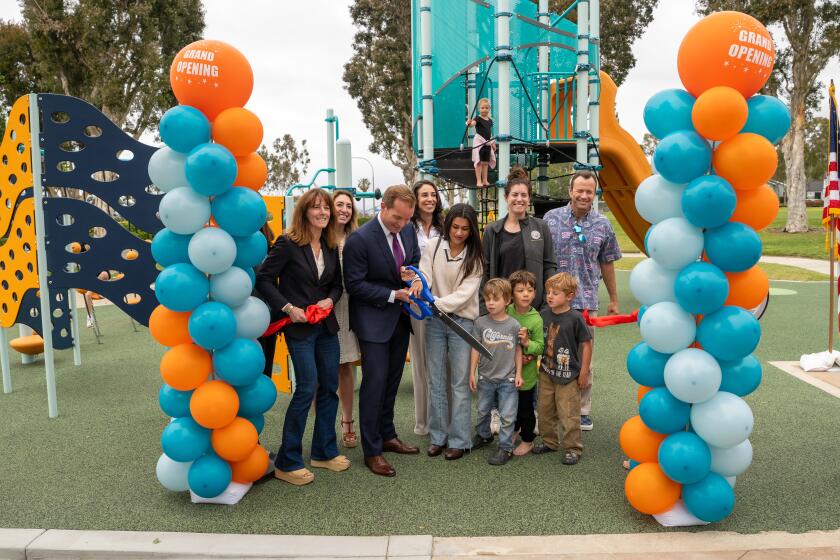Laguna Beach ordinance aims to set objective standard for declaring an animal a public nuisance

- Share via
Laguna Beach has passed an ordinance making several changes to its municipal code regarding animals.
Among the changes enacted via a second reading at Tuesday night’s City Council meeting was a new measurable standard for enforcement against dog barking.
Thirty minutes of incessant dog barking, or 60 minutes of intermittent barking, within a 24-hour period would now constitute a violation of the municipal code.
Jim Beres, a professional services administrator with the Laguna Beach Police Department, said the municipal code previously lacked a threshold for quantifying barking as a code violation. Beres oversees the city’s animal control officers and animal shelter.
“It’s been based historically on the number of complaints we’ve gotten, and kind of the totality of the circumstances, and what the animal services officer felt was reasonable,” Beres said when the ordinance was introduced at a council meeting on July 25. “It’s led to a situation where some dog owners have felt that they’ve been treated differently than others.”
The dog barking standards being implemented by Laguna Beach are consistent with those put to use by the county of Orange, as well as 13 cities across the county. The same threshold is in place for Fountain Valley, Huntington Beach and Irvine, among other county municipalities.
Laguna Beach police received 222 complaints for bothersome dog barking in 2021. That same year, the department wrote 81 warnings and nine citations in response to complaints. Animal service officers have issued 23 warnings but have yet to write a citation related to the issue this year, Beres added.
With a specific amount of time attached to code violations, the burden of proof for a dog barking violation would fall on the complaining party. That was cause for concern for resident Penelope Milne, an animal behavior consultant who suggested that animal control could be a fair and impartial arbiter.
“If we’re looking at intermittent barking for 60 minutes within 24 hours, that is a lot of logging for the neighbor to do, and we would be depending on an irritated neighbor to be fair and accurate,” Milne said. “There aren’t too many other things in the city where our evidence base is an irritated next-door neighbor without any kind of cross check.”
Beres reckoned at the initial hearing on the item that tightening up the definition of a code violation would lead to fewer infractions because it would hold complaints to an objective standard.
Michael Obrand, a South Laguna resident, in a written communication to the council said that two complaints to the city resulted in a reduction of barking from a neighboring home. He argued that the changes to the city’s animal code would be more permissive for irresponsible dog owners.
“I got to tell you, I was very pleased to hear that the city is going to provide additional mental health services, because if you pass this ordinance as it’s written, we’re going to need that,” Obrand said at the second reading. “I really want you to think about the impact of what you were about to pass here. You’re talking about 30 minutes of incessant barking over a 24-hour period.
“I’m not anti-dog. I’m anti-inconsiderate dog owners. In fact, I don’t think I’ve ever heard a dog bark without stopping for 30 minutes. Dogs bark and bark for a few seconds at a time. It may go on for hours on end, and that’s what we’ve been dealing with.”
The approved municipal code amendments prohibit tying an animal to a moving vehicle or bicycle, including e-bikes. It also outlined the process for declaring an animal to be a public nuisance, potentially dangerous or vicious. Such a designation would be determined through an administrative hearing. The pet owner could appeal the decision.
In reaffirming its unanimous decision, the council also requested that city staff return with a report on implementation of the ordinance following the first six months.
All the latest on Orange County from Orange County.
Get our free TimesOC newsletter.
You may occasionally receive promotional content from the Daily Pilot.




